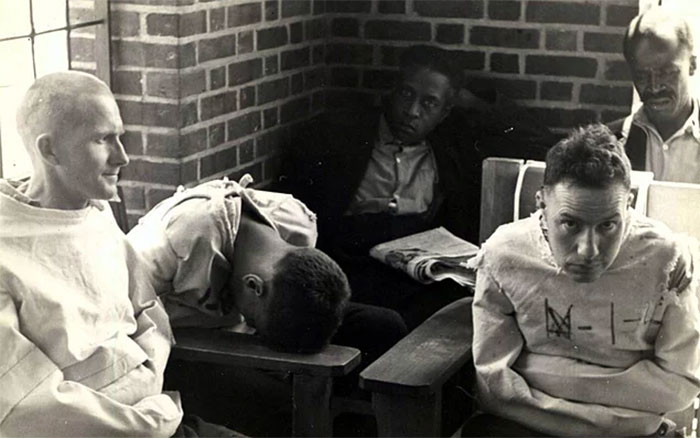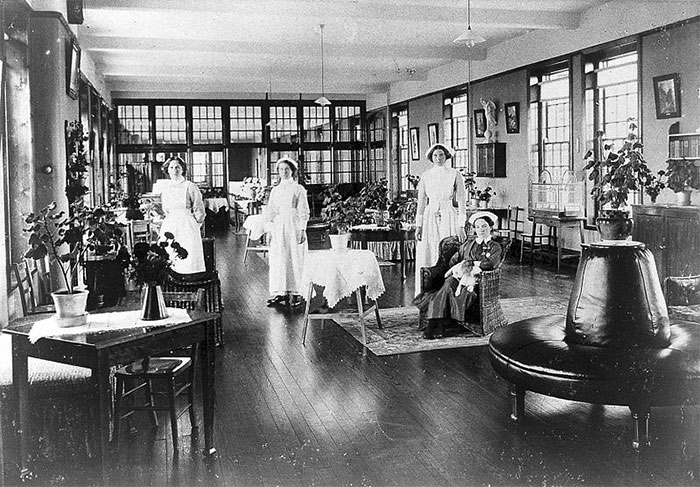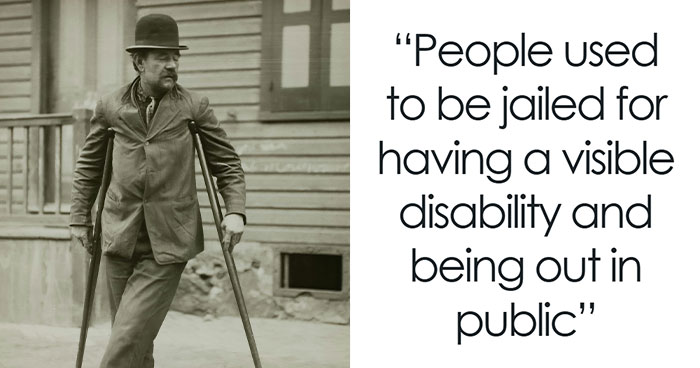
8 Completely Healthy People Tried To Find Out How Easy It Is To Get Admitted To A Psychiatric Asylum, Only To Realize How Hard It Is To Get Out
If you ever saw American Horror Story season 2 you might have the fear of being locked up in a psychiatric hospital, even though you are completely sane. When you think of it, it’s a very irrational fear, right? You just tell the nurses that you are completely sane, you have no serious issues with your mental health, and you are free to go! Well, turns out there might be something really messed up with our mental health institutions since once you get in there, it’s not so easy to get out.
Back in 1969, psychologist Dr. David Rosenhan created an experiment and called it “Being Sane in Insane Places”
The whole idea behind this unique experiment was to test out how easy it actually is to get into a psychiatric hospital, and how difficult it is to get out. Rosenhan gathered 8 people (three woman and five men) and every one of them gained admission to a different psychiatric hospital.”Among them where three psychologists, a pediatrician, a psychiatrist, a painter, and a housewife.” Every participant stated that they hear ‘voices’ in their head that repeated 3 words – ‘empty’, ‘dull’, ‘thud’.
Image credits: Goddessofhellfire (not the actual photo)
It only took them to have this one symptom to be easily assigned to a psychiatric hospital. Rosenhan states that he feared they would be easily caught in the hospital and exposed as frauds, but this fear was nowhere near the reality.
Image credits: Tom (one of the hospitals where the experiment was held)
The moment the participants stepped foot into these hospitals, all of them claimed their symptoms had vanished and they felt just fine. But that was not enough for them to be released.
Image credits: Skin Ubx
In fact, not one employee noticed that these people might have been faking their issues with mental health.
It took from 7 to 50 days for every participant to get out but no one was assigned ‘healthy’. Every single person was released with such disorders like manic-depressive disorder and even Schizophrenia.
Image credits: picryl
Even though the participants acted completely normal, their actions, like writing a diary, were considered disturbed. Patients were also treated poorly even though participants were kind to the staff, and some even experienced abuse. Rosenhan used the word ‘dehumanizing’ to describe the entire experience.
What fascinates us the most is that out of 118 actual patients, 35 noticed something ‘off’ with the participants, stating that they might be journalists or professors performing an experiment.
Image credits: Library of Congress
The entire experiment resulted in a simple conclusion: mental health facilities are more keen to misdiagnose a healthy person to be sick, then a sick person to be healthy. “It is clear that we cannot distinguish the sane from the insane in psychiatric hospitals,” Rosenhan wrote.
Image credits: Wellcome Collection gallery
Check out this video to learn more about the experiment!
46Kviews
Share on FacebookI somehow feel that for me the most disturbing thing is that I'm not surprised and can imagine it happening today too
This is something that happened in 1969 with tragically flawed experiment parameters that had no way to be measured or deterred from different uncontrollable variables. This wasn't an experiment, it was a stunt. The fact of the matter is that if you present yourself as a schizophrenic, you can't be magically cured. It doesn't just go away.
At least one other person gets it. So a mental hospital is supposed to let everyone out who walks up and says "Even though I just got here and haven't even had treatment yet, I'm good. Lemme go" and they hospital should let you out and all is well? What do you expect? Obviously abuse etc is terrible, but the overall concept of this "stunt" as you put it is flawed.
Load More Replies...I kind of feel that people's problems are given a psychiatric label and palmed off as something medication can quickly fix. When people are unhappy with life, unfulfilled, even grieving it's labeled as depression. When my best friend died and I was grieving my GP felt it was best to try to put me on anti depressants. I needed a support group or maybe talk therapy and to understand that when something terrible happens it's acceptable to be lost and feel incredible grief. Giving out medication makes people less able to cope with life's problems as the answer lies in a bottle and should be quickly fixed. And worse it takes away from people that are genuinely suffering with a condition.
I somehow feel that for me the most disturbing thing is that I'm not surprised and can imagine it happening today too
This is something that happened in 1969 with tragically flawed experiment parameters that had no way to be measured or deterred from different uncontrollable variables. This wasn't an experiment, it was a stunt. The fact of the matter is that if you present yourself as a schizophrenic, you can't be magically cured. It doesn't just go away.
At least one other person gets it. So a mental hospital is supposed to let everyone out who walks up and says "Even though I just got here and haven't even had treatment yet, I'm good. Lemme go" and they hospital should let you out and all is well? What do you expect? Obviously abuse etc is terrible, but the overall concept of this "stunt" as you put it is flawed.
Load More Replies...I kind of feel that people's problems are given a psychiatric label and palmed off as something medication can quickly fix. When people are unhappy with life, unfulfilled, even grieving it's labeled as depression. When my best friend died and I was grieving my GP felt it was best to try to put me on anti depressants. I needed a support group or maybe talk therapy and to understand that when something terrible happens it's acceptable to be lost and feel incredible grief. Giving out medication makes people less able to cope with life's problems as the answer lies in a bottle and should be quickly fixed. And worse it takes away from people that are genuinely suffering with a condition.

 Dark Mode
Dark Mode 

 No fees, cancel anytime
No fees, cancel anytime 
























































355
49